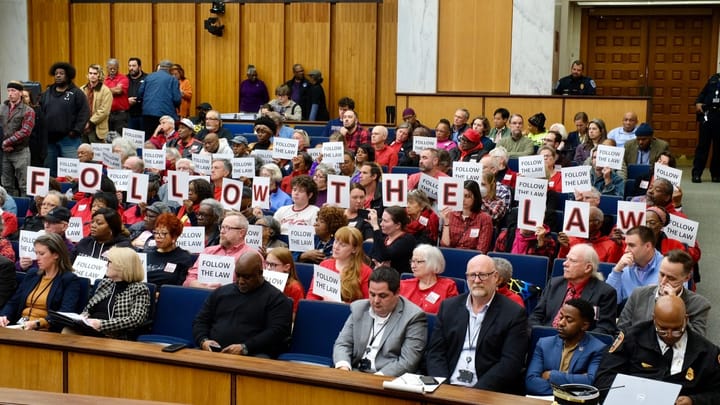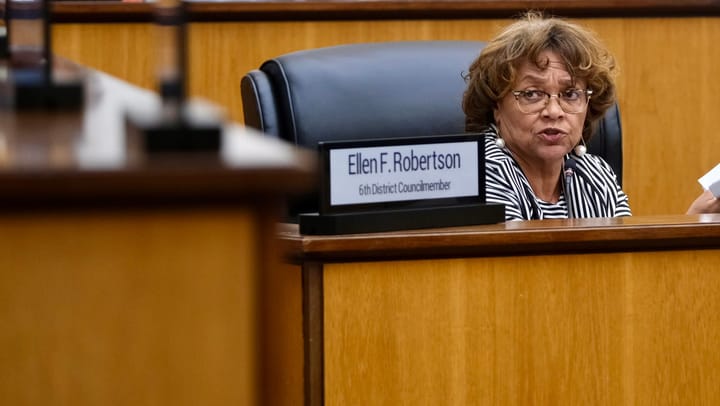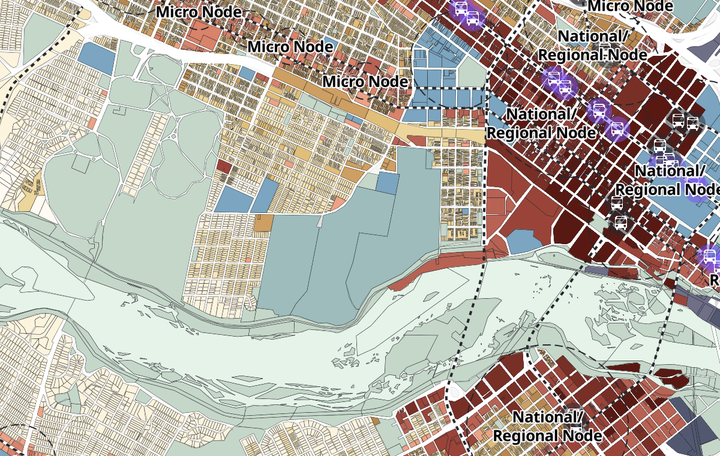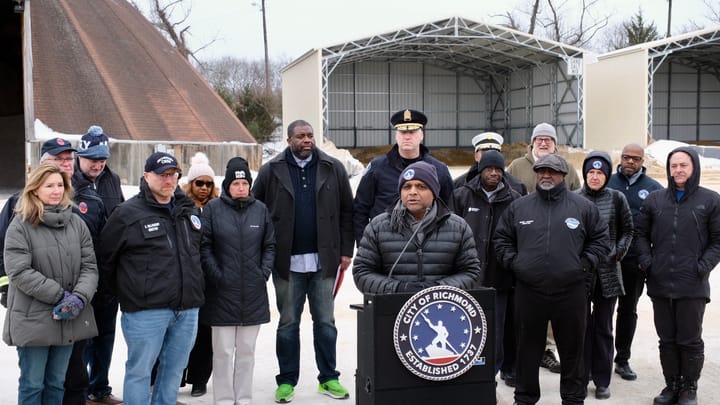Housing authority chief says he is ‘disappointed’ by Avula’s Gilpin Court stance

The head of Richmond’s housing authority said Friday he was “disappointed” to see Mayor Danny Avula’s statement that he would not support the Gilpin Court redevelopment plan unless the authority met eight demands.
“It was a very sad day,” said Richmond Redevelopment and Housing Authority CEO Steven Nesmith at a press conference called by the authority in response to Avula’s Thursday release. “It was a sad day for Gilpin residents. It was a sad day for collaboration, unity of purpose.”
While Nesmith repeatedly emphasized his respect for the mayor Friday — “He is a great mayor, and I think he has a great vision for the city,” he said at one point — he also portrayed Avula’s statement as a roadblock to ongoing talks with the administration and City Council over the Gilpin redevelopment.
“We had hoped that we would be at the negotiating table this week,” said Nesmith. “But look, instead of being at the negotiating table, we’re all here today.”
As tensions have risen over RRHA’s plans for Gilpin, Richmond’s oldest and largest public housing development, Avula, Nesmith, City Council President Cynthia Newbille (7th District) and Councilor Kenya Gibson (3rd) have met privately to hammer out disagreements over how to proceed.
Nesmith has characterized those conversations as “very constructive” and on Friday said he had brought the group a potential ordinance that aimed to satisfy all parties’ concerns. That ordinance has not been shared publicly, but an RRHA spokesperson indicated it is intended to replace a proposal from Gibson that would halt further work with the authority’s chosen developer until Council authorizes it to go forward.
Avula’s Thursday statement provided insight into what the administration’s priorities are as the project moves forward.
Many of the eight requirements listed by the mayor as a condition of his support focus on resident engagement and protections. They include the creation of a tenants bill of rights that would ensure all residents can return to Gilpin if they so choose, a commitment to working with residents to make sure they meet federal criteria to receive a housing voucher, and the distribution of materials that “very clearly” lay out projected timelines and services available to residents during the project.
Asked which of those demands RRHA disagrees with, Nesmith said he would “leave that for the negotiation.”
“I’m not going to say which ones we do or don’t, but I will say this: As I read the eight points from the mayor, I think many of them make sense,” he said.
One likely source of friction may be Avula’s requirement that RRHA withdraw its proposal to transfer Gilpin Court to the Richmond Development Corporation, a nonprofit subsidiary of the housing authority that has existed for years but rarely been used, until concerns about how it is governed are addressed.
That transfer has sparked alarm among many community members and officials such as Gibson, who have questioned why the move is necessary and what resident protections it might affect.
Nesmith continued to defend the use of the RDC on Friday, pointing out that subsidiaries are a commonly used tool of public housing authorities throughout Virginia and arguing that the nonprofit will serve as a critical “engine to bring in capital” to the authority as federal funding for redevelopment continues to decline.
He also said RRHA now plans to transfer Gilpin gradually, as each phase of redevelopment occurs. That new approach would require the authority’s board of commissioners to vote on each transfer.
A transfer vote has been expected at the board’s next meeting, scheduled for Sept. 17, but Nesmith said Friday that he didn’t know if it would occur.
“We may or we may not,” he said.
What comes next remains uncertain. Gibson’s proposal halting further work with the developer is set to be taken up by a Council committee Tuesday, although a vote by the full body would be required for it to take effect, and it is not clear whether all members would be on board with the idea.
Kiara Harris, a member of Gilpin Informed Residents, a group of tenants that formed in 2022 and worked as ambassadors to the broader community during the crafting of the Jackson Ward Community Plan, said any plan needs to include solid guarantees for residents. A set of priorities released by the Residents includes calls for the creation of a community benefits agreement and greater voting power for residents on both the RDC and the project as a whole.
“We heard a lot of talk, and right now we’re past the talking stage,” she said. “It’s about concrete and law-abiding agreements.”
In particular, she said she would like to see RRHA’s plan for Gilpin put in writing, and for greater community involvement.
“He’s only held two community meetings,” she said. “Before that, there had been no communication with the residents or with the stakeholders of the overall Jackson Ward Community Plan since 2023.”
Contact Reporter Sarah Vogelsong at svogelsong@richmonder.org
The Richmonder is powered by your donations. For just $9.99 a month, you can join the 1,000+ donors who are keeping quality local journalism alive in Richmond.






